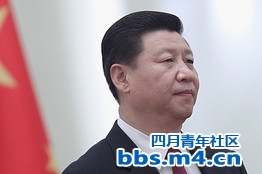本帖最后由 小明啊 于 2011-12-19 14:48 编辑
The Corruption of Hong Kong's Democracy Beijing undermines the local government and imperils social stability.

http://online.wsj.com/article/SB10001424052970203430404577096012997818628.html?mod=rss_most_viewed_day_asia?mod=WSJAsia_article_forsub
A scandal over Hong Kong's local-level elections could change the politics of the territory as much as the massive protests over restrictions on civil liberties did in 2003. It is now clear that the Beijing government sought to corrupt Hong Kong's electoral system, even as it drags its heels in allowing greater public participation in government. This underhanded move imperils the territory's stability.
Shortly after the Nov. 6 District Council polls, pro-democracy politicians noted several cases of voters registering in closely contested constituencies under false or suspicious addresses. The suspicion was that the pro-Beijing camp moved voters from its strongholds into constituencies where they could swing the result.
The government responded by saying that it would look into the complaints, but that it also believed the problem was not serious. Chief Executive Donald Tsang suggested that losing candidates were suffering from a case of sour grapes.
Those remarks look increasingly dubious today. Over the last six weeks, the media have uncovered more than 800 voters with obviously fake addresses. Since these voters were particularly careless—registering addresses in buildings that no longer exist and the like—the true number of fraudulent votes could be many times greater
Next magazine published a letter from an association of Hong Kong tycoons serving in mainland provincial legislatures which tasked its members with recruiting more than 15,000 votes for targeted constituencies. And that is only one of several such mainland-affiliated bodies that are heeding Beijing's calls to play a bigger role in local affairs. Since the average constituency contains 17,000 voters and many of the 412 races were decided by several hundred votes or fewer, tens of seats may have been captured due to fraud.
To the Hong Kong government's credit, the Independent Commission Against Corruption has sprung into action, arresting 31 people so far. The lead role of the ICAC, rather than the police, shows that the offenses go beyond simply providing false information and extend to a deliberate conspiracy to commit election fraud. So far none of the masterminds have been brought to justice, and this will be a critical test of whether Hong Kong's law enforcement and judiciary remain insulated from political interference.
The government has known about vote fraud for years but chose not to reform the electoral system. In 2006, the Audit Commission reported that voters were registering under false addresses, but the government resisted requiring proof of address on the grounds that it might lower the level of registration and turnout. After the 2007 District Council elections, complaints of widespread vote planting also fell on deaf ears. It seems this response emboldened the fraudsters to undertake a larger effort to steal seats in last month's elections.
Such a large-scale operation requires resources that could only have been mobilized by Beijing, operating through its many allies in the territory. This is arousing new fears that while the Chinese government has agreed to allow elections by universal suffrage starting in 2017, it will use whatever overt and covert means are necessary to prevent the people from freely choosing future chief executives and legislators.
Respected local newspaper Ming Pao last month sounded the alarm that Beijing's corruption will destabilize Hong Kong: "If vote-rigging distorts election outcomes and worsens Hong Kong politics, citizens may no longer have confidence in the electoral system. In that event, Hong Kong cannot possibly remain stable." That earned the paper a rebuke from a China Daily columnist, who accused it of being "biased against people who love Hong Kong as well as the country."
Some outside observers might shrug and ask why the outside world should care. After all, there is little that can be done to prevent China from violating its promises to preserve Hong Kong's system and way of life. Even so, it is critical that Beijing is called to account for violating promises when its word is increasingly relied upon to resolve a widening range of international disputes.
A second reason to care about Hong Kong's fate is its role as a demonstration that a city under Beijing's rule can practice democracy to govern itself efficiently and stably. Its success should pave the way for eventual political reform on the mainland. If Beijing destroys this cosmopolitan and free city by forcing upon it the Communist Party's methods of control, China's ability to transform itself into a responsible great power is seriously in doubt.
 该贴已经同步到 小明啊的微博 该贴已经同步到 小明啊的微博 |